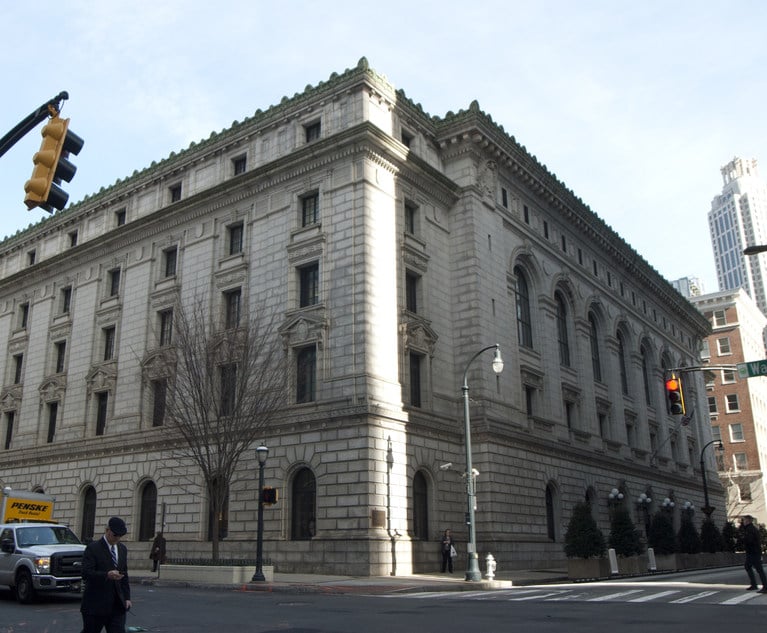 Robert Wilson (from left), Manubir "Manny" Arora and Jennifer Hyman of Arora Law in Atlanta. Courtesy photos
Robert Wilson (from left), Manubir "Manny" Arora and Jennifer Hyman of Arora Law in Atlanta. Courtesy photos The Metamorphosis of the Georgia RICO Statute
Although RICO was created in response to organized crime, the Georgia RICO statute is far more expansive. This means that prosecutors can bring RICO charges against any corrupt "criminal enterprise."
November 08, 2023 at 01:20 PM
4 minute read
Expert OpinionOver the past few years in Georgia, the prosecutors' crime du jour has become the RICO statue—Racketeer Influenced and Corrupt Organizations Act. RICO allows the state to charge and convict people under novel theories for acts that may not fit into the standard definition of a crime. These cases often spark debate over whether the activity was in fact a crime or simply amoral.
Congress passed federal RICO in 1970, and Georgia followed suit passing its own RICO statute in 1980. The impetus of the RICO legislation was to tackle organized crime. Prior to RICO, the problem prosecutors faced in fighting organized crime was that those in command of the organization could shield themselves from liability—since they never did the "dirty" work.
This content has been archived. It is available through our partners, LexisNexis® and Bloomberg Law.
To view this content, please continue to their sites.
Not a Lexis Subscriber?
Subscribe Now
Not a Bloomberg Law Subscriber?
Subscribe Now
NOT FOR REPRINT
© 2025 ALM Global, LLC, All Rights Reserved. Request academic re-use from www.copyright.com. All other uses, submit a request to [email protected]. For more information visit Asset & Logo Licensing.
You Might Like
View All

Georgia RICO Case Against Trump Likely to Avoid Trial Amid Election Win, Nationally-Known Law Professor Says

Expert: Georgia Tech Faces Uphill Battle in Suit Over Cybersecurity Failures

11th Circuit Recent Dismissal Ruling Could Impact How 'Plaintiffs Draft Their Complaints,' Litigator Predicts
Trending Stories
- 1Fourth Circuit Seeks More Legal Briefs in Unresolved N.C. Supreme Court Election
- 2iRobot Picks Up Law Firm Partner as New Legal Chief
- 3Baker McKenzie Spins Off AI-Powered Risk Management Tool SCOREalytics as Independent Business
- 4Edison Hit With Lawsuits Over Devastating Eaton Fire in Los Angeles
- 5Does Society’s Focus on Children’s Sexuality Make Them Vulnerable to Grooming?
Who Got The Work
Michael G. Bongiorno, Andrew Scott Dulberg and Elizabeth E. Driscoll from Wilmer Cutler Pickering Hale and Dorr have stepped in to represent Symbotic Inc., an A.I.-enabled technology platform that focuses on increasing supply chain efficiency, and other defendants in a pending shareholder derivative lawsuit. The case, filed Oct. 2 in Massachusetts District Court by the Brown Law Firm on behalf of Stephen Austen, accuses certain officers and directors of misleading investors in regard to Symbotic's potential for margin growth by failing to disclose that the company was not equipped to timely deploy its systems or manage expenses through project delays. The case, assigned to U.S. District Judge Nathaniel M. Gorton, is 1:24-cv-12522, Austen v. Cohen et al.
Who Got The Work
Edmund Polubinski and Marie Killmond of Davis Polk & Wardwell have entered appearances for data platform software development company MongoDB and other defendants in a pending shareholder derivative lawsuit. The action, filed Oct. 7 in New York Southern District Court by the Brown Law Firm, accuses the company's directors and/or officers of falsely expressing confidence in the company’s restructuring of its sales incentive plan and downplaying the severity of decreases in its upfront commitments. The case is 1:24-cv-07594, Roy v. Ittycheria et al.
Who Got The Work
Amy O. Bruchs and Kurt F. Ellison of Michael Best & Friedrich have entered appearances for Epic Systems Corp. in a pending employment discrimination lawsuit. The suit was filed Sept. 7 in Wisconsin Western District Court by Levine Eisberner LLC and Siri & Glimstad on behalf of a project manager who claims that he was wrongfully terminated after applying for a religious exemption to the defendant's COVID-19 vaccine mandate. The case, assigned to U.S. Magistrate Judge Anita Marie Boor, is 3:24-cv-00630, Secker, Nathan v. Epic Systems Corporation.
Who Got The Work
David X. Sullivan, Thomas J. Finn and Gregory A. Hall from McCarter & English have entered appearances for Sunrun Installation Services in a pending civil rights lawsuit. The complaint was filed Sept. 4 in Connecticut District Court by attorney Robert M. Berke on behalf of former employee George Edward Steins, who was arrested and charged with employing an unregistered home improvement salesperson. The complaint alleges that had Sunrun informed the Connecticut Department of Consumer Protection that the plaintiff's employment had ended in 2017 and that he no longer held Sunrun's home improvement contractor license, he would not have been hit with charges, which were dismissed in May 2024. The case, assigned to U.S. District Judge Jeffrey A. Meyer, is 3:24-cv-01423, Steins v. Sunrun, Inc. et al.
Who Got The Work
Greenberg Traurig shareholder Joshua L. Raskin has entered an appearance for boohoo.com UK Ltd. in a pending patent infringement lawsuit. The suit, filed Sept. 3 in Texas Eastern District Court by Rozier Hardt McDonough on behalf of Alto Dynamics, asserts five patents related to an online shopping platform. The case, assigned to U.S. District Judge Rodney Gilstrap, is 2:24-cv-00719, Alto Dynamics, LLC v. boohoo.com UK Limited.
Featured Firms
Law Offices of Gary Martin Hays & Associates, P.C.
(470) 294-1674
Law Offices of Mark E. Salomone
(857) 444-6468
Smith & Hassler
(713) 739-1250






